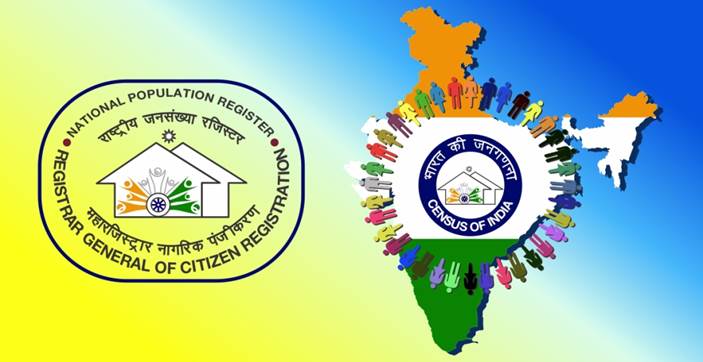Description

Copyright infringement not intended
About
- The Union Home Ministry in its 2021-22 annual report highlighted that there is a need to update the National Population Register (NPR) to adjust the changes due to birth, death and migration.
- The NPR was first prepared in 2010 and was updated in 2015 by collecting information on all usual residents of the country.
- In 2015, a few fields such as name, gender, date and place of birth, place of residence and father’s and mother’s name were updated and Aadhaar, mobile and ration card numbers were collected.
- The Ministry said that the NPR could be updated through self-enumeration as it allows residents to update their data fields after following some protocols on the official web portal.
- The report stated that the Citizen Amendment Act (CAA) does not apply to Indian citizens and “therefore, it does not in any way take away the rights of any Indian citizen.
National Population Register (NPR)
- It is a register of the usual residents of the country.
- A usual resident is a person who has resided in a local area for the past 6 months or more or a person who intends to reside in that area for the next 6 months or more.
- Every usual resident of India must register in the NPR.
- It includes both Indian citizens as well as foreign citizens.
- The objective of the NPR is to create a comprehensive identity database of every usual resident in the country.
- The first National Population Register was prepared in 2010 and updating this data was done in 2015 by conducting door-to-door surveys.
- NPR is prepared under the Citizenship Act 1955 and the Citizenship (Registration of Citizens and Issue of National Identity Cards) Rules, 2003.

Citizenship (Amendment) Act, 2019
- The Bill amended the Citizenship Act, of 1955.
- The Citizenship Act, of 1955 provides various ways in which citizenship may be acquired.
- It provides for citizenship by birth, descent, registration, naturalisation and by incorporation of the territory into India.
- It regulates the registration of Overseas Citizens of India Cardholders (OCIs) and their rights.
- The Act provide that the Hindus, Sikhs, Buddhists, Jains, Parsis and Christians from Afghanistan, Bangladesh and Pakistan, who entered India on or before December 31, 2014, will not be treated as illegal migrants.
- They are also exempted from the Foreigners Act, of 1946 and the Passport (Entry into India) Act, of 1920.
- The 1920 Act mandates foreigners to carry passports, while the 19th Act regulates the entry and departure of foreigners in India.
- The Act allows a person to apply for citizenship by registration or naturalisation if the person meets certain qualifications;
- To obtain citizenship by naturalisation, one of the qualifications is that the person must have resided in India or have been in service of the central government for at least 11 years before applying for citizenship.
- The present act creates an exception for Hindus, Sikhs, Buddhists, Jains, Parsis and Christians from Afghanistan, Bangladesh and Pakistan, concerning this qualification. For these groups of persons, the 11 years requirement was reduced to five years.
https://epaper.thehindu.com/Home/ShareArticle?OrgId=GH9AG2218.1&imageview=0
https://t.me/+hJqMV1O0se03Njk9














